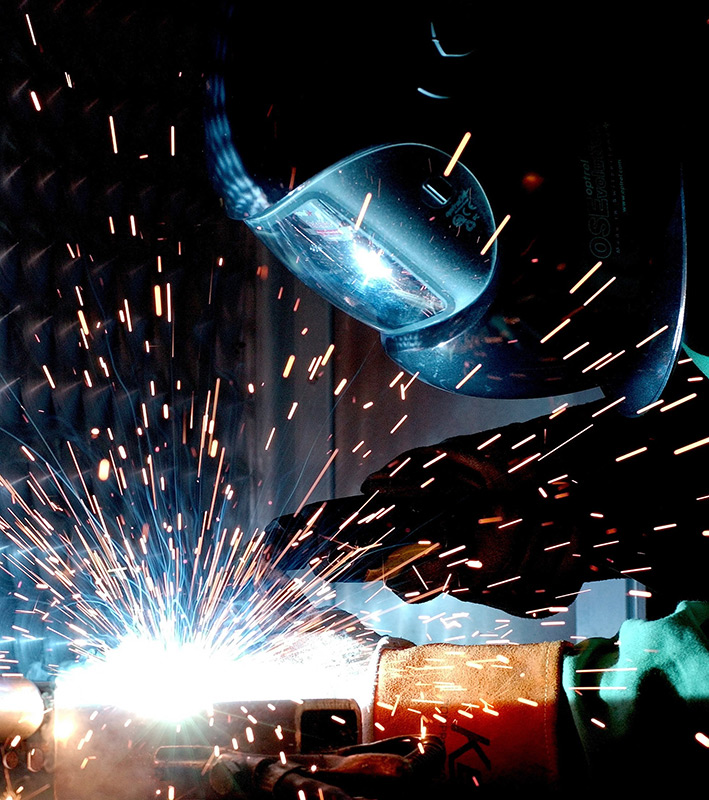While the industrial technology sector is undervalued and underappreciated, it actually offers a bright economic future.
By Nick Santhanam, Fernweh Group CEO
While countless headlines over previous decades have recounted the decline of US manufacturing, the coverage has almost entirely overlooked a resurgence that’s well underway. Much of the industrial sector is thriving, offering high-quality jobs with good pay, and producing strong financial returns. In fact, the returns boasted by some of the companies at the heart of the manufacturing sector, which we call the Titanium Economy, have exceeded those of the acclaimed Silicon Valley FAANG tech stars—Facebook, Apple, Amazon, Netflix, and Google. We lovingly refer to this collection of high-tech manufacturing firms as the “Titanium Economy” because their namesake metal shares many characteristics with the identified companies: titanium is extremely durable and corrosion-resistant. Perhaps most importantly, many of us likely wouldn’t recognize titanium by appearance—but it’s everywhere—in our cars, our mobile phones, our jewelry, sports equipment, surgical tools, and more. These “Titanium Economy” companies are quite similar to their namesake—many have persisted for decades, weathering numerous economic storms yet emerging stronger.
Titanium Economy companies aren’t business-to-consumer brands that take out Super Bowl ads, nor do many of them make products that consumers can purchase. The products they do make, however, enable the creation of products and services that are critical to our daily lives, as well as to finding solutions to the many pressing problems the United States is facing, from battling climate change, to creating a more sustainable and reliable food system, to restoring and upgrading infrastructure. Their CEOs aren’t often featured on CNBC or the front page of the Wall Street Journal, but they’re an incredibly driven bunch, helping their companies across decades of consistent innovations and profits. And while these companies aren’t unicorns, they are as crucial to the current US economy—and we would argue even more so to our collective future.
Take Tom Ferguson, CEO of AZZ, a leader in what is known as hot-dip galvanization, a process of protecting steel by coating it with molten zinc. Who knew? But the protection it provides the steel frames of bridges from the corrosive ravages of rain, snow, and salt can extend the lifetimes of these key structures indefinitely. With so many bridges in the United States in desperate need of repair, and with so much new construction of infrastructure going forward, the enormous value of this innovation couldn’t be more germane. “As America invests in upgrading our aging infrastructure,” Ferguson told us, “we’ll be there whether you see us or not.”
The Titanium Economy is not only underappreciated, but also undervalued. Nearly half the companies my co-authors and I studied for our book on the subject outperformed the S&P Index from 2015 to 2020, and multiple industrial companies have achieved returns that rival the celebrated FAANG. Further underscoring the strength of the Titanium Economy sector, our research found that an estimated 90 percent of its firms are profitable. Indeed, according to a study from McKinsey, Industrials only trailed the information technology, consumer discretionary, and communications services in shareholder return. This means that companies don’t require a constant spending treadmill. In fact, some 85 percent of industrial companies have a relatively low capital expenditure and R&D model.

Like the middle sibling, the Titanium Economy is tragically misunderstood, still seen through the lens of the retrenchment of the 1980s and its repercussions. When many plants went dark, entire communities were devastated as long-employed workers were laid off and young people fled due to a lack of jobs. The hollowing out made a profound impression on the national conscience, and we’re still suffering from an impression that there was no hope for an American manufacturing recovery. The public can’t be blamed for the lack of appreciation of the industrial sector’s comeback. While the media, pundits, and analysts detail every morsel of news that trails social media titans, they’ve almost entirely ignored the story of how resilient, and now resurgent, the industrial-tech economy is and how it is healing communities, beating analysts’ expectations, and creating jobs with salaries that far surpass those of many workers in other sectors. Because of that lack of coverage, the image of a factory that most Americans conjure in their minds is badly outdated, like the horribly loud and dangerous shop floor. The nature of factories has changed, however, with strong workplace protections and high-tech equipment transforming them into clean, safe, and productive operations.
The Titanium Economy is creating remarkable value through relentless innovation and providing a playbook for catalyzing the extraordinary growth that can make the United States once again the undisputed world leader in manufacturing.

Nick Santhanam is the CEO of Fernweh Group, an investment company which is adapting an engaged investor & operator model (EIOM) to create alpha in the industrial and industrial technology sector. Visit https://fernweh.com/ for more information or follow the company on LinkedIn.
Scott Ellyson, CEO of East West Manufacturing, brings decades of global manufacturing and supply chain leadership to the conversation. In this episode, he shares practical insights on scaling operations, navigating complexity, and building resilient manufacturing networks in an increasingly connected world.